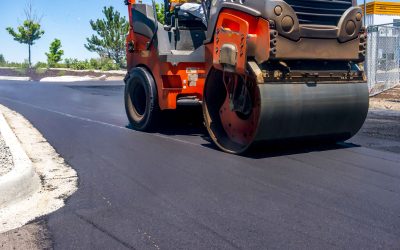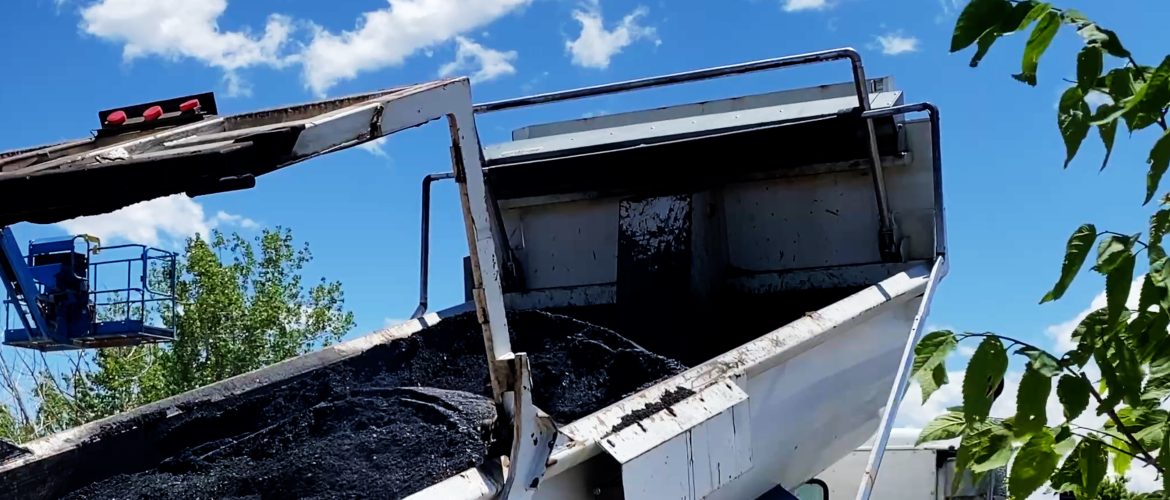Key Takeaways
- Quality installation is crucial for the longevity of an asphalt driveway, providing a strong foundation for years of use.
- Regular maintenance, including sealcoating and prompt repairs, can significantly extend the lifespan of your asphalt driveway.
- Proper drainage and water management are essential to prevent moisture-related damage and preserve the integrity of your driveway.
Maximize Your Asphalt Driveway’s Lifespan: Key Factors Revealed
Asphalt driveways and pavements are a popular choice for homeowners and businesses alike, offering durability and cost-effectiveness. However, their longevity can vary significantly based on several critical factors. As Denver’s trusted asphalt paving experts with over 15 years of experience, Foothills Paving & Maintenance understands the importance of maintaining your asphalt investment. In this comprehensive guide, we’ll explore the top five factors that impact the lifespan of an asphalt driveway, providing you with valuable insights to protect and extend the life of your pavement.
1. Quality of Installation: The Foundation of Longevity
The longevity of an asphalt driveway begins with its installation. A properly installed asphalt driveway can last 20-30 years, while a poorly installed one may deteriorate within just a few years. The quality of the foundation is crucial, as it provides the necessary support for the asphalt layer.
Key aspects of quality installation include:
- Proper subgrade preparation
- Adequate drainage systems
- Correct asphalt mix design
- Appropriate compaction techniques
Professional paving contractors, like Foothills Paving & Maintenance, ensure that each step of the installation process is executed with precision. They use high-quality materials and state-of-the-art equipment to create a durable foundation that can withstand the test of time.
Improper installation can lead to premature cracking, potholes, and other forms of deterioration. These issues not only affect the appearance of your driveway but also compromise its structural integrity. By investing in professional installation, you’re setting the stage for a long-lasting asphalt driveway that will serve you well for decades.
2. Climate and Weather Conditions: Nature’s Impact on Asphalt
Colorado’s unique climate plays a significant role in the longevity of asphalt driveways. Extreme temperature fluctuations, freeze-thaw cycles, and UV radiation can all contribute to the deterioration of asphalt pavement.
Here’s how weather affects your driveway:
- Freeze-thaw cycles cause expansion and contraction, leading to cracks
- UV radiation breaks down the binder in asphalt, causing oxidation and brittleness
- Heavy rainfall can lead to water infiltration and foundation issues
To combat these environmental challenges, it’s essential to choose the right asphalt mix for your specific climate. Foothills Paving & Maintenance uses specially formulated asphalt mixes designed to withstand Colorado’s harsh weather conditions. Regular sealcoating applications can also provide an additional layer of protection against UV rays and moisture.
Proper drainage is crucial in mitigating weather-related damage. Ensuring that your driveway has the correct slope and adequate drainage systems will prevent water from pooling on the surface or seeping into the foundation. This proactive approach can significantly extend the lifespan of your asphalt driveway, even in challenging climates.
3. Traffic Load and Usage Patterns: Wear and Tear Considerations
The amount and type of traffic your asphalt driveway experiences directly impact its longevity. Heavy vehicles, frequent use, and turning movements can all contribute to wear and tear over time.
Factors to consider include:
- Weight of vehicles using the driveway
- Frequency of use
- Types of vehicles (cars, trucks, RVs, etc.)
- Turning and braking patterns
Residential driveways typically experience less stress than commercial parking lots or high-traffic areas. However, even residential driveways can suffer from excessive wear if not designed to handle the expected load. For instance, if you regularly park heavy vehicles or equipment on your driveway, you may need a thicker asphalt layer or reinforced base to prevent premature deterioration.
To address these concerns, Foothills Paving & Maintenance offers customized solutions based on your specific usage patterns. We can design and install asphalt driveways that are tailored to your needs, ensuring optimal performance and longevity. Additionally, we recommend periodic assessments to identify and address any areas of excessive wear before they develop into more significant problems.
4. Maintenance and Repairs: Proactive Care for Extended Life
Regular maintenance is crucial for maximizing the lifespan of your asphalt driveway. Neglecting small issues can lead to more extensive damage over time, ultimately shortening the life of your pavement.
Essential maintenance tasks include:
- Regular cleaning to remove debris and chemicals
- Prompt crack sealing to prevent water infiltration
- Periodic sealcoating to protect against UV rays and moisture
- Timely repairs of potholes and other surface damage
Foothills Paving & Maintenance offers comprehensive maintenance programs tailored to your specific needs. Our experienced team can identify potential issues early on and implement preventive measures to extend the life of your asphalt driveway.
One of the most effective maintenance techniques is sealcoating. This protective layer helps shield your asphalt from harmful UV rays, oil spills, and water penetration. We recommend applying a new sealcoat every 2-3 years, depending on your driveway’s condition and usage.
By investing in regular maintenance and timely repairs, you can significantly extend the lifespan of your asphalt driveway, saving money on premature replacement and ensuring a smooth, attractive surface for years to come.
5. Drainage and Water Management: Protecting Against Moisture Damage
Proper drainage is essential for preserving the integrity of your asphalt driveway. Water is one of the most destructive forces when it comes to pavement longevity, as it can weaken the foundation and accelerate deterioration.
Key aspects of effective drainage include:
- Proper grading and sloping of the driveway
- Installation of adequate drainage systems
- Regular cleaning of gutters and downspouts
- Addressing pooling water promptly
Professionals emphasize the importance of proper drainage during the initial design and installation phase. It is important to ensure that your driveway has the correct slope to direct water away from the surface and foundation. Today, French drains or other drainage solutions are options to manage excess water effectively.
Poor drainage can lead to a host of problems, including:
- Softening of the asphalt surface
- Erosion of the base material
- Formation of cracks and potholes
- Premature aging of the pavement
By addressing drainage issues proactively, you can prevent water-related damage and significantly extend the lifespan of your asphalt driveway. Regular inspections, especially after heavy rainfall, can help identify and address any drainage problems before they cause significant damage.
FAQ
How long does an asphalt driveway typically last?
An asphalt driveway can last anywhere from 15 to 30 years, depending on various factors such as installation quality, maintenance, climate, and usage patterns. With proper care and regular maintenance, some asphalt driveways can even exceed this lifespan.
What are the signs that my asphalt driveway needs repair?
Common signs that your asphalt driveway needs repair include:
- Cracks larger than 1/4 inch
- Potholes or sunken areas
- Fading or gray color
- Rough or uneven surface
- Pooling water
- Edges breaking apart
If you notice any of these signs, it’s best to consult a professional paving contractor for an assessment.
How often should I sealcoat my asphalt driveway?
Generally, it’s recommended to sealcoat your asphalt driveway every 2-3 years. However, this can vary depending on factors such as climate, usage, and the condition of your driveway. In harsh climates or high-traffic areas, more frequent sealcoating may be necessary.
Can I repair my asphalt driveway myself?
While small cracks and minor repairs can be addressed with DIY methods, it’s generally best to leave significant repairs to professionals. Improper repairs can lead to further damage and may void any existing warranties. Professional contractors have the expertise, equipment, and materials to ensure long-lasting repairs.
How can I prevent cracks in my asphalt driveway?
To prevent cracks in your asphalt driveway:
- Ensure proper installation with a strong foundation
- Apply sealcoat regularly
- Address drainage issues promptly
- Avoid parking heavy vehicles in the same spot repeatedly
- Clean up chemical spills immediately
- Fill small cracks as soon as they appear
Regular maintenance and prompt attention to small issues can significantly reduce the likelihood of major cracks developing.




